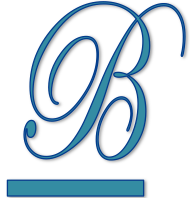Be in control of your workshops and achieve much more than what you set out to do!

This post follows from the part 1 at:
Part 2 on conducting great workshops!
Part 1 dealt with,
– identification of workshop objectives
– classification of participants
– Dealing with each category
This part deals with the preparation for ensuring a super workshop!
‘Be Prepared’, the boy scout motto applies itself well in our case! Just be aware that,
Workshops that deal with organization level changes have much higher rate of success, when the participating audience is comprised of individuals across the organization. While this ensures a high quality of discussion and a wider coverage of options, this also necessitates that the workshop preparation is at an organization level. Imagine having to switch topics (production – sales – supply chain – general management – product development-…) while discussing a single idea or impact!
An interesting introduction ice-breaker that I used to bring out the value of each participant was to pair the participants and have them ‘sell’ their partners to the audience. The selling terms would be in terms of expertise, roles & responsibilities and hobbies. This ensures that the audience understands the value that each individual brought to the workshop while also establishing a personal connect!
From my experience, 8 preparation activities that have helped me connect well with the audience and conduct a great workshop:
- Research, research & research:
Understand the industry, the players and the latest happenings in the industry. How is your customer going to be impacted?
Ideas and the suggestions that will make the Senior management sit up and take notice (‘Wow! That’s interesting – we never thought of it that way!’) are important. The quality of interaction could make or break the senior management commitment to the workshop.
- Who’s who?
Use LinkedIn and other social networks to really understand the participants better. Using their name as they walk-in and referencing their experience works wonders. A simple ‘Hey Mark, how’s your whitepaper on predictive analytics going?’ warrants a focused participant and a great contact!
If you can’t find them on the social network, the organization’s intranet could help you with the photos and the project details. You can have a ready greeting for them!
- Be value driven:
Workshops could actually result in a massive waste of time and money if not properly channelled. A 2-day workshop with 15 participants could be a massive 240 hours wasted if not conducted properly, and if it fails to meet the expectations. Make sure to that the expectations are set forth and the objectives clearly communicated before the start of the workshop. Time checks and course corrections are a must!
- Be prepared:
Prepare for exigencies – non availability of meeting rooms, workshop materials, food and beverages (very important – hunger is a big distraction), reduced availability of key participants…. could all feature in your list of risks. Plans B & C really help!
- Ensure mutual respect:
More the participants connect with each other, the easier it is to conduct and achieve the objectives. One fun way to ensure that each individual understands the importance and the value of the other participants is to conduct a ‘Sell him’ introduction. Participants in pairs, sell each other to the audience at large bringing out the best that they have to offer in terms of their experience.
- Have Fun!
Workshops need not be morose, sullen affairs where the focus is merely on coming up with an organization strategy or defining the requirements for the next state-of-the-art trading system. You would realise that the idea is to not only come up with the best of plans but to also ensure that the participants are at their creative best. In fact, You would never believe some of the great ideas that come up as a result of participant letting go of their constrained thinking.
- Hold individuals responsible
Walking away from a workshop and forgetting what happened is a very common occurrence. Workshops should be followed up with action items and status reporting to ensure that the learning and the actions do not go waste. In order to institutionalize a desired trait, it needs the best of nurturing and directions and of course, follow-ups.
- Ground rules rule!
Laying down the rules for usage of electronic devices, breaks, expression of views and attendance helps in setting the context and ensures a workshop with minimal interruption.
And yes, the minutes, notes and actions are to be diligently followed up for closure! You would not have any real trouble in setting up small meetings as you have already established rapport and the context.
People always want to help – we just need to enable them in the right way!
Enjoy your workshops! Rock the show!

